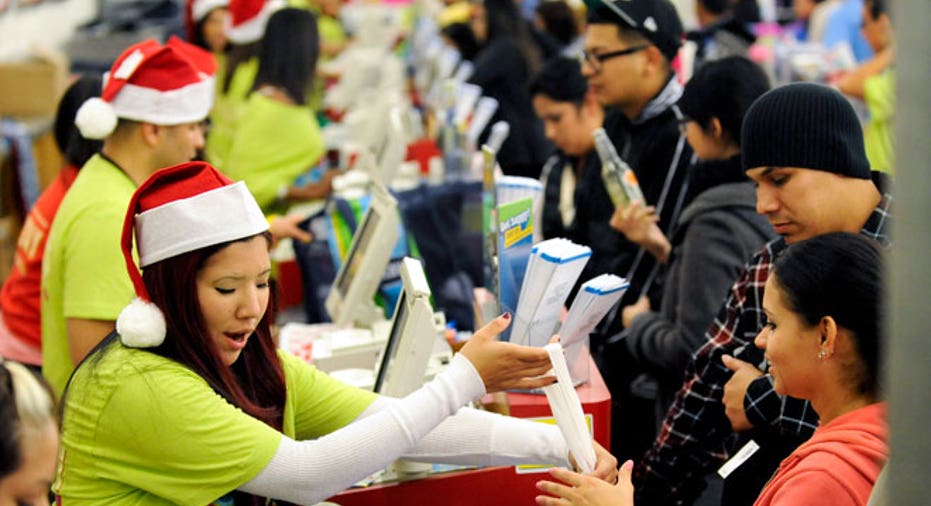How Retailers Use Psychology Against You

Remember the old adage about a fool and his money? It's difficult to be pound or penny wise when retailers spend countless hours researching the consumer mind and the triggers that tempt people to spend.
Want to recognize these tactics so you can avoid them and keep your saving account intact? Here are some principles to keep in mind.
A bargain isn't always a bargain. "For some shoppers, clearance racks are like catnip," writes Kit Yarrow, author of "Decoding the Consumer Mind," in a recent piece for Time. "The impressive differences between the 'original prices' and the dramatically marked down rates draw them in, leaving the impression that these deals are just too good to pass up."
According to a recent piece in Science News, many of these so-called bargains are the result of "'fake prices," the ones that customers see but rarely pay because of coupons and sales." Setting an inflated original price is known to marketers as "anchoring."
Since most shoppers are unaware of the inherent value of many retail products, the anchor is offered to give shoppers a bit of information to evaluate a purchase. Typically, the anchor price is artificially increased to give consumers the perception of a bargain once the item has been marked down. According to a recent Wall Street Journal article, retailers may "work backward with their suppliers to set starting prices that, after all the markdowns, will yield the profit margins they want."
To avoid the psychological draw of a bargain too good to pass up, Patricia Nelson, founder of the community outreach program Wise Women Workshop, suggests shoppers create a budget before leaving their homes. "Write down what you need and only get what's on your list."
Further, writes Yarrow in the Time piece, "a 'deal' isn't a deal when you buy things you don't end up using, and you spend money you wished you hadn't."
Our browsing habits tell all. Both online and in-store, retail marketers are watching your every move. Online they plant cookies on your Web browser and then buy ad space from the sites you frequent. That's how the shoes you were eyeing on one site magically appear in the sidebar when you log in to your Facebook account. The more retailers know about your web history, the longer those shoes will follow you.
Beyond this, many brick-and-mortar retailers install smart cameras that track customer movements around the store. Thus, marketers know where to place merchandise to better boost sales.
However, shoppers can use technology to their benefit too. Online tracking can be minimized with web solutions like DuckDuckGo or Ghostery. Further, Nelson recommends smartphone apps like Barcode Scanner or Price Check by Amazon that let shoppers compare prices instantly and find the lowest available price for a particular product.
We're not as rational as we think. What major retailers know, and many consumers do not, is that our external environment plays a huge role in our buying decisions. One recent study at Washington State University found that consumers exposed to one simple scent over another, more complex odor spent 20 percent more money while shopping. It's not just our nose that affects our shopping behavior. We're susceptible to music, language, colors, textures and even merchandise placement.
The best defense against retailers' sensory strategies, according to Nelson, is to shop online. The online experience takes sensory input out of the equation, helping us to make more rational buying decisions.
Loyal customers are profitable customers. All those free retail loyalty programs that you belong to may actually be costing you money. Strategically timed coupons are designed to get you in the store or online, usually just after you've taken a shopping hiatus. When you use a loyalty card, you give a retailer permission to track when and what you buy and how much you usually spend.
According to a recent study published in Scientific Reports, shoppers' behavior is often repetitive when it comes to stores and expenditures, which makes it possible to predict future shopping patterns. For a retailer, these buying patterns are powerful information that, if wielded properly, can tempt many to increase spending.
When it comes to loyalty coupons, "toss them if you don't need them immediately," says Nelson.
The tactics retailers use can make it challenging to keep your savings plan on track, but being aware of them is a great first step to building your resistance.
The original article can be found at SavingsAccounts.com:How retailers use psychology against you



















